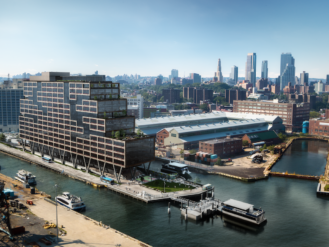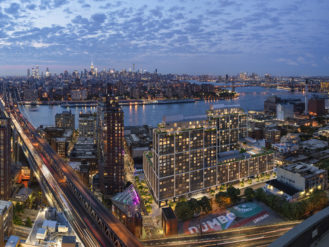Why Brooklyn Apartment Rents Are Finally Dipping
A new report shows the median monthly rate falling 1%. The main reason: all that new construction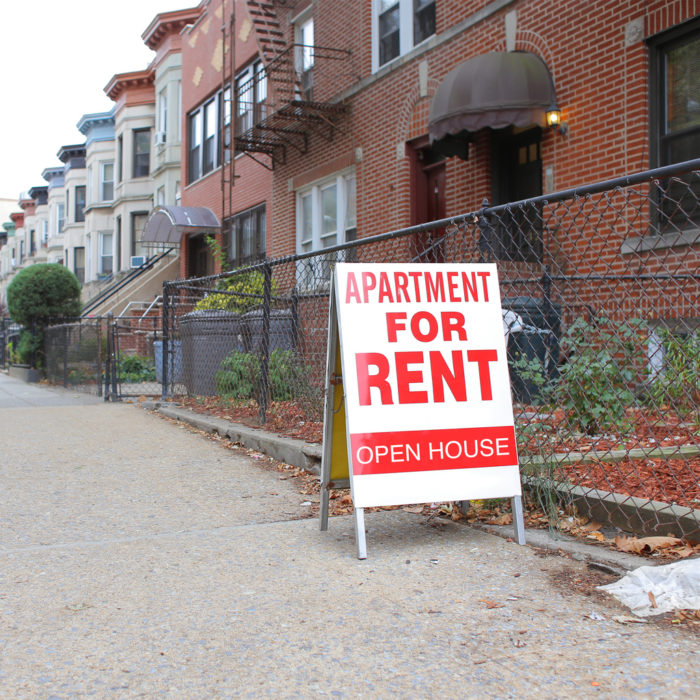
An eager Brooklyn landlord put out a sandwich-board sign to lure passers-by (Photo by iStock by Getty Images)
“Falling rent” and “Brooklyn” are rarely heard in the same sentence. However, the numbers confirm that it’s no longer a contradiction in terms. In a market report released this week, Douglas Elliman Real Estate said that the median rental price for Brooklyn apartments declined 1.1% in July, to $2,795, vs. the same month a year ago. The net effective rent, including concessions, dropped 1.8%, to $2,745, declining for the third month in a row. The share of new rentals offering concessions was 22.1%, up from 9.5% a year ago and setting a record for the seven years the number has been tracked. The typical concession was 1.4 months of free rent. (In Manhattan, the median rental, including concessions, was down 1.9%, to $3,350.)
While still pricey compared to other places, Brooklyn is having a moment of rent relief because of new construction, especially in the downtown area. Nearly 7,000 apartments have been added to that neighborhood in the past decade, with at least 2,000 more on the way. All those developers have been competing for customers and dangling incentives. “I think it’s the inventory. Customers have so many choices,” Hal Gavzie, Douglas Elliman’s executive manager of leasing, told The Bridge. “Customers are looking at a lot more apartments than in the past. They used to look at five, and now it’s ten to 15.” The number of new Brooklyn leases in July increased to 1,400, a 6% jump from last year. “The [new] development right now is changing the market. There’s a giant saturation of properties,” said Clyde Bell, a broker at B. Belinda Realty in Crown Heights.
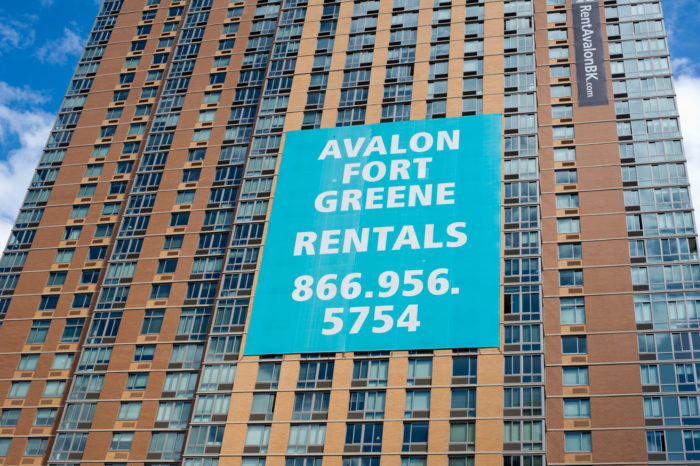
Giant new residential buildings like this one have brought thousands of new apartments into the Brooklyn housing market (Photo by Alamy)
Because more listings are on the market in Brooklyn (2,490 in July, up 2.7%), landlords have rolled out concessions rarely seen in recent years. The lures can include reduced broker fees (or no broker fees at all) or a month or two of free rent. Landlords prefer to give concessions up front rather than lower the rent, which would have a longer-term effect on their revenue. “It’s been a viable tool for landlords to protect the base rent,” Jonathan Miller of Miller Samuel, the author of the market report, told The Real Deal. “In other words, they’re able to show that the base rent isn’t declining. However, as of late, the base rent has been declining.”
Concessions are more likely to be offered by landlords with big, new buildings, rather than smaller landlords and mom-and-pop rentals. “Older landlords don’t want to do it,” said Bell. “There are a lot of new landlords that are from the city, where concessions are the norm.”
The softest part of the rental market is the high end, including new luxury apartments downtown. “More affordable housing is moving faster than the middle and upper parts of the market,” said Gavzie. Truly affordable housing for working-class Brooklynites is still desperately short, as demonstrated by the tens of thousands of applications received in lotteries for affordably-priced housing.
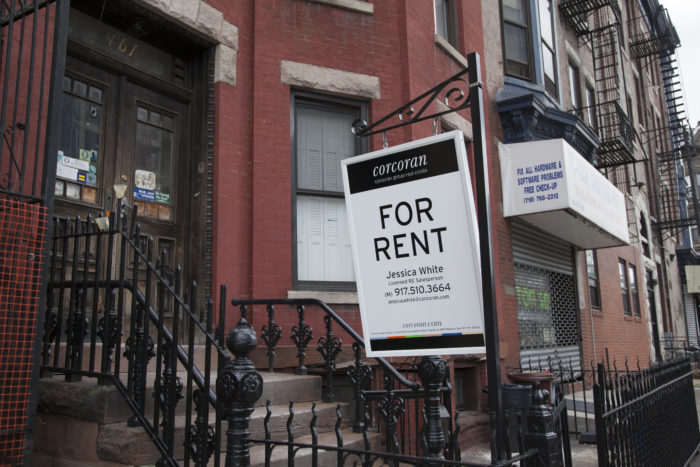
An apartment for rent along 4th Avenue in Park Slope (Photo by Alamy)
Despite the softening rental market, landlords have generally declined to loosen up their qualifications for renters, which often require an income equivalent to dozens of months in rent, or a guarantee from someone with deeper pockets. “Qualifications haven’t eased up really. Maybe on units that have been on the market for a while, but larger companies especially are not being any more lax about the qualifications,” said Gavzie.
Over the next few years, the rental market is likely to tighten up again, since new construction has slowed. The dollar volume of commercial and multifamily building-construction starts in New York City for the first half of the year fell 27%, to $7.2 billion, vs. the same period last year, according to a study reported in the Commercial Observer. The decline was even more dramatic, 63%, compared with 2015, a year that saw the highest level of building in half a century. “There’s going to be a point where you can’t build anymore,” said Bell. “There aren’t many vacant lots anymore.”
For the moment, however, there are deals to be had. “I see concessions staying for a bit. I don’t see this ending for a couple of months,” said Gavzie. “We’re about to end the peak season and then the market starts to soften even more, so I see the concessions lasting through the end of the year.”






